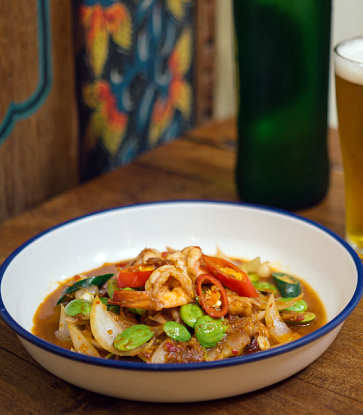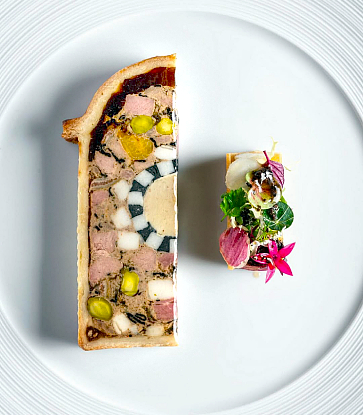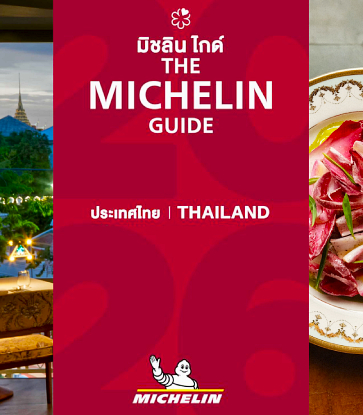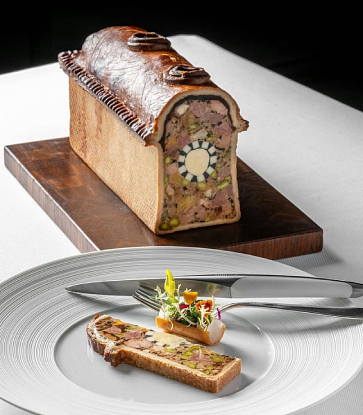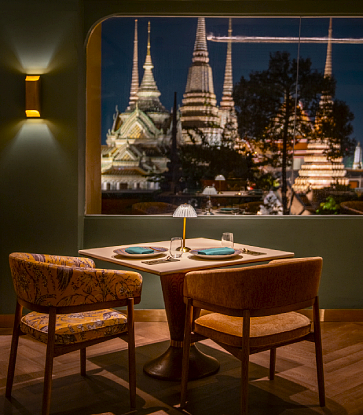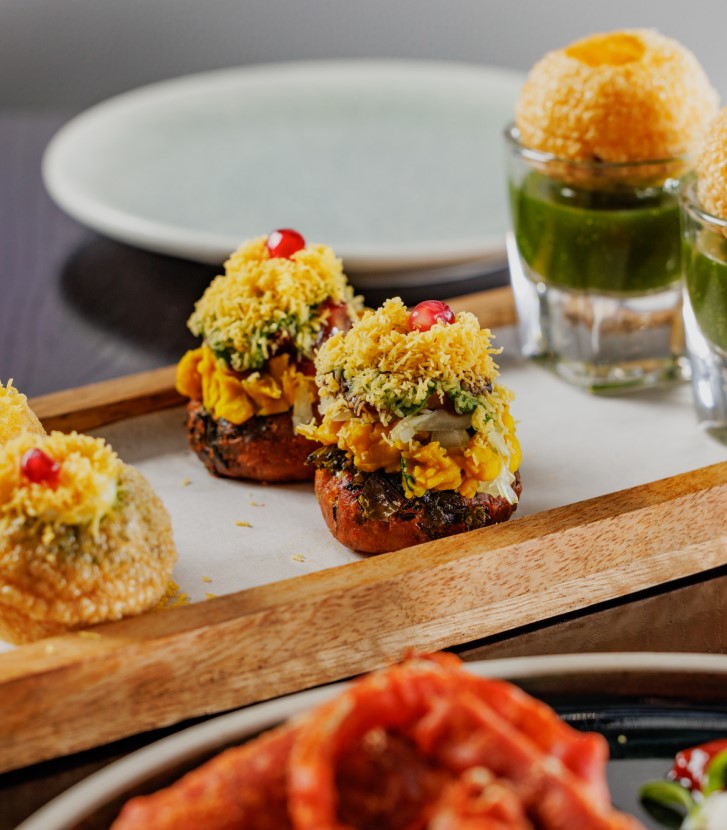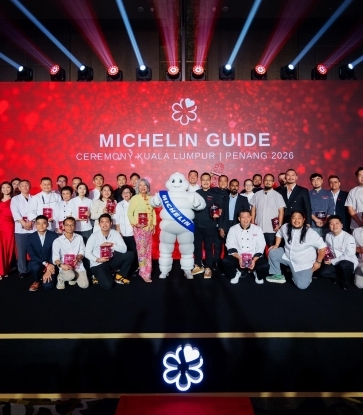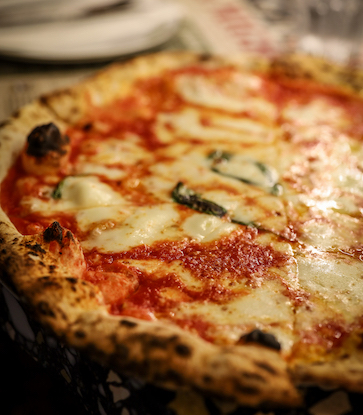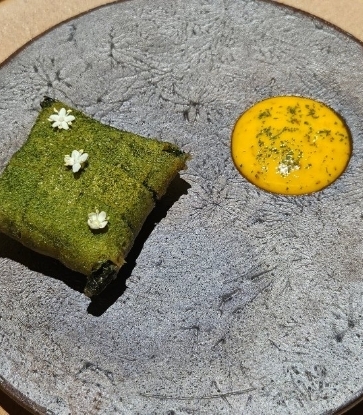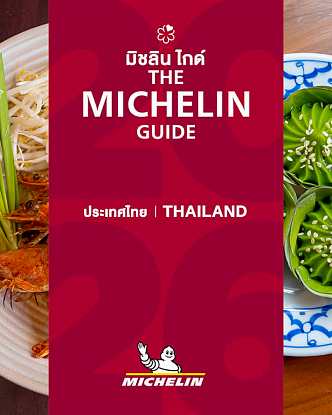12 months on from the launch of Thailand’s inaugural MICHELIN Guide, we sit down with Chow to see what she’s observed since the guide’s arrival.
Q: What was Thailand’s food scene like before the arrival of Michelin in 2017?
Chawadee Nualkhair: Before the MICHELIN Guide, the Thai food scene was a bit different. For a long time, hotels dominated the fine-dining scene and if you wanted to have a decent meal you would have to go to a 5-star property.
When Michelin arrived, we saw an explosion of standalone restaurants not linked to hotels willing to take the risk and present their own food without anybody shielding them.
Q: What was your perception of the Michelin brand before we came to Thailand?
Chawadee Nualkhair: Honestly, I revered Michelin. I revered Michelin because I went to a cooking school in Paris called “Ferrandi”. As a student in Paris, the MICHELIN Guide was like God. The guide not only introduced me to what food could be and what food was expected to be, but also gems: little things, little places, that you would not otherwise known as an impoverished international student living in the Latin Quarter of Paris. You would not know about these places unless you read the guide.
Q: How did the arrival of the MICHELIN Guide change the food scene in Thailand?
Chawadee Nualkhair: It made Thailand proud of its own cuisine. In a way, it enlivened the dining scene and enabled people to take more risks and say “this is my take on Thai food.”
The guide also propelled chefs forward; it made Thai food evolve and adapt more quickly than it would have if the MICHELIN Guide was not here.
Q: Does a French company know more about Thai food than Thais?
Chawadee Nualkhair: The MICHELIN Guide coming to Thailand is a double-edged sword. Michelin coming to say “these places are great, please try them” is wonderful. It is a wonderful thing to inject lifeblood and international interest in what I firmly believe is the greatest cuisine in the world.
But it also creates skepticism among people who question foreigners that come and tell us what good food is. The anonymity of the Michelin process works against them in this case because no one knows what the judges look like. We are told there are Thais on the inspection team, but how Thai are they? Because everyone works in secret and the way the inspections work, you don’t know who is making decisions.
Q: As a Thai person, do you agree with the selection?
Chawadee Nualkhair: Opinions about restaurants – like anything where anyone could have a view – is subjective. If people agree with Michelin’s selection then people say “Michelin is right, this is a great guide.” But if people disagree with the selection then they say “This guide is nonsense, Michelin doesn’t know what they are doing.” And sometimes you can feel the same way in the same guide.
Overall, I agree with most of what Michelin says in their guide.
Q: Can you name some of the restaurants you agree with?
Chawadee Nualkhair: I was really excited about Jay Fai’s inclusion last year. I thought it was very important for Thai street food to get an ode from a big organisation like Michelin. I think Thai street food – I am biased obviously – is one of the great street food traditions in the world.
Jai Fai is one of the best cooks in the country and I was happy to see her get awarded. That being said, I was not prepared – and I don’t think she was either – for what happened afterwards. I don’t think Michelin or anyone else was prepared for the attention her restaurant got!

Q: Was there any surprises for you in the inaugural guide?
Chawadee Nualkhair: There were a couple of restaurants that I was surprised by. It did propel me to try them, so in a way the MICHELIN Guide opened my eyes to some new places and new experiences.
Q: Do you think the MICHELIN Guide is relevant for consumers?
Chawadee Nualkhair: Yes, and that’s an important thing to remember. Michelin for me is invaluable in pointing out restaurants at every price point. It is targeted for everyone. Anyone who wants to eat well should be able to pick something from the guide and try it out no matter what budget.
To me and people in the industry, Michelin is not associated with fine-dining only. Michelin is associated with good food. They are supposed to point out anything that they consider good food, including street food.
Q: Given the number of restaurant awards everywhere, do you think the MICHELIN Guide is still influential in the F&B industry?
Chawadee Nualkhair: I believe that the MICHELIN Guide and the Michelin Stars are the Oscars of food. They have the power – as we saw with Jay Fai – to bring many more people to your doorstep. They make or break a restaurant. That’s why the stars get so much attention and scrutiny.
Q: How do you see Thailand’s food scene evolving?
Chawadee Nualkhair: I think there will be a lot more risks taken with Thai food. For many decades, Thai food has been stuck in this idea that there has to be a certain way to make something and any other way to make it is completely illegitimate.
People will start experimenting more, trying out new things, new techniques and you will see Thai food being cooked by a whole bunch of different people beyond old aunties or chefs working at hotels. Everybody will start trying new things and you will see more personality through the dishes that are yet to come.
Q: If you were a Michelin Inspector what dishes would you try?
Chawadee Nualkhair: When I go to a restaurant, I like to try the Tom Yum because I think it is really hard to make. It is an infusion and to make it traditionally and to have all the flavours concentrated in the dish is very difficult.
Kaeng Som is another one: very few ingredients and difficult to make. And personally, nam prik kapi, just because I love it! I very rarely find a version that I hate.





